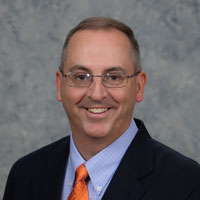ENE Research Seminar: Studying Undergraduate Experiences as Predictors of Early Career Performance for Military Space Operations Officers
| Event Date: | October 31, 2024 |
|---|---|
| Speaker: | Keith Balts |
| Type: | Research Seminar |
| Time: | 3:30-4:20 p.m. |
| Location: | WANG 3520 |
| Open To: | Graduate and undergraduate students, staff, and faculty with an interest in educating engineers |
| Priority: | No |
| School or Program: | Engineering Education |
| College Calendar: | Show |
For the high-flex option, register in advance. You will receive a confirmation email containing information about joining the meeting.
Abstract: Undergraduate students who go on to operate space systems come from a diverse set of demographics and undergraduate experiences. The United States Space Force (USSF), and United States Air Force (USAF) before them, like many professions and industries, have a demonstrated interest in who enters their ranks, but have had limited research available to them to inform recruiting, selection, training, and early career development policies and processes. This Profession-Based Education Research study, a term introduced here in contrast to Discipline-Based Education Research, focused on the military space operations profession. This study analyzed newly commissioned USAF and USSF space operations officers from 2018-2022 to baseline the relationship between undergraduate experiences and early career performance. The study’s conceptual framework was primarily based on Becker’s (1993) Human Capital Theory (HCT), Collins’ (2019) Credentialism Theory, and Lent and Brown’s (1996) Social Cognitive Career Theory (SCCT) and used engineering education’s pipelines, pathways, and ecosystems paradigm (Lee, 2019) to illustrate the individual’s progression from undergraduate student into and through the early portion their professional careers. This non-experimental, retrospective, quantitative study analyzed proxy variables from multiple government-provided databases to investigate relationships between undergraduate experiences and early career performance at initial space training. Key results from the confirmatory and exploratory analysis included statistical significance from three readily available variables, e.g., GPA, officer aptitude, and race. The study’s conclusions and implications focused on recommendations to shape evolving USSF and other professions’ policies that involve recruiting, selection, training, and professional development, It also recommended future research opportunities by outlining specific considerations for study design, data collection, and analysis. This Profession-Based Education Research should inspire USSF and other professions to identify and collect undergraduate and professional performance data to better understand the impact that higher education has after the graduation milestone, not just during educational activities.
Bio: Keith Balts, Colonel (Retired), USAF, currently serves as a Professor of Practice in Leadership and the Director of the Leadership Signature Program within the Wilbur O. and Ann Powers College of Business at Clemson University. Prior to his current position, he served as the commander of Clemson’s Air Force ROTC detachment, dual-hatted as the Department Chair for Aerospace Studies. He received a Bachelor of Science degree in Mathematics from the University of Wisconsin at Madison, a Masters of Engineering degree in Space Operations from the University of Colorado at Colorado Springs, and two additional Masters of Arts degrees related to national security and leadership from Air University and the Naval War College. He is also a graduate of the United States Air Force Weapons School. He served for twenty-eight years as an Air Force space operations officer which included four deployments and three command tours at the detachment, squadron, and wing/base level. He is currently pursuing a doctorate in Engineering and Science Education from Clemson University with plans to graduate in December 2024. He also the proud father of a current Purdue Boilermaker, class of 2025.

